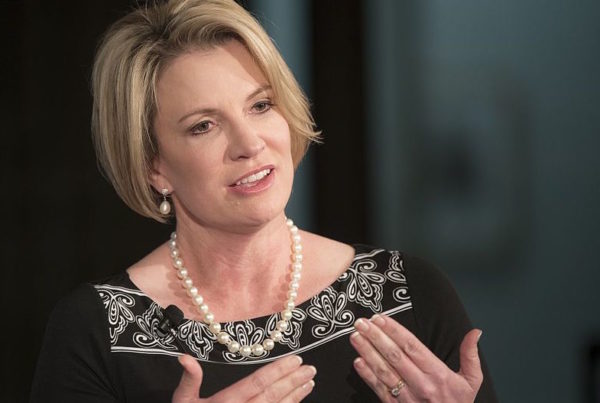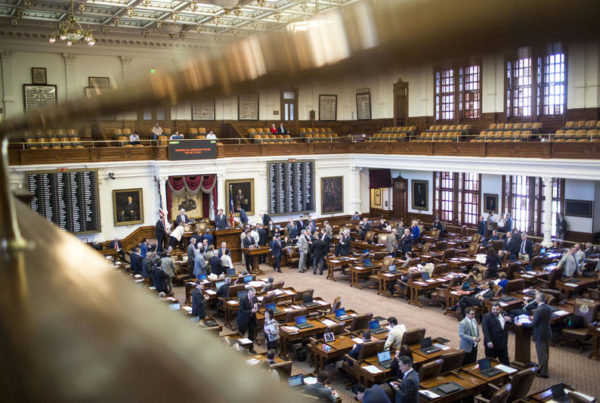Late Thursday night, those watching C-SPAN were rewarded with a preview of what’s roiling Washington on this Friday – brinksmanship over a budget. Senate Democrats blocked Republican attempts to hold a quick vote on a short-term spending plan that would keep the federal government open past Saturday. Democrats said the stopgap spending measure was no good because of Republican attachments – so-called ‘poison pills.’
U.S. Rep. Lloyd Doggett (D-Austin) represents parts of south and central Texas and serves on the committee that controls the government’s purse strings – the House Ways and Means Committee. He says that if the House and Senate approve a measure to avert a shutdown, it will be a temporary stopgap. Republicans are to blame, he says, for inserting distractions into the process of passing a spending bill.
“We’ve had all this talk this week of a new healthcare deal, attack on Korea, dropping out of NAFTA, a few other things,” Doggett says, “and we stumbled to the finish with the major accomplishment of the Republicans and Donald Trump this week extending the operation of our federal government by exactly one week.”
Doggett says Republicans had a chance to pass a budget in December, which would have avoided the possibility of a shutdown this week.
“Here we are after months of this fiscal year still without a spending measure to govern the operations of all federal activities from now until September,” he says. “And they do keep wanting to put various things in there other than spending, in ways that are very unpalatable.
The idea of sticking in wall funding first and putting in restrictions on Planned Parenthood, and a variety of other provisions that have nothing to do with direct spending measures do tend to delay this. But the notion that Donald Trump can blame Democrats when there’s a very solid majority in what Speaker Paul Ryan calls ‘unified Republican government’ is pretty ridiculous.”
On Thursday, Rep. Kay Granger (R-Fort Worth) told the Standard that Democrats want to embarrass President Trump by shutting down the government. Doggett says Granger and her colleagues hold all the cards.
“She’s got the majority,” he says. “She’s the chairwoman of a subcommittee on appropriations. What should have occurred is after the election, to approve an appropriations bill for the entire fiscal year like we normally do. But they refused to do that because they wanted to use it as a bargaining chip, here at mid-year.”
Doggett says not approving a full year’s budget has consequences for taxpayers and federal agencies.
“It’s really unfortunate because it ends up costing taxpayers more money with this stop and start kind of operation,” he says. “And our federal agencies even under President Trump cannot plan their operations when they don’t know whether they have money for programs, even next month.”
Getting a budget passed that covers the portion of the fiscal year that remains – between now and September depends on how much the Republicans tie it to their other priorities, Doggett says.
“It depends whether they propose to hitch up this new plan to deny Texans health insurance coverage to the same appropriations measure,” Doggett says. “I don’t think any of us on the Democratic side want to replace Obamacare with nothingcare, and that’s exactly what some Republicans are advocating.”
Doggett says a healthcare bill depends on Republicans finding a way to reach agreement among themselves, too.
“[Republicans] have tried that, but the healthcare bill is so bad, that they can’t get a number of Republicans to vote for it,” he says. “Even Republican members, many of them, are reluctant to vote for a bill that does so much harm to so many. By the estimates that I’ve seen, as many as 47 percent of Texans under 65 have a pre-existing condition.
“Under this bill, they will delegate to the Texas legislature – and Governor Abbott – the opportunity to make those individuals pay more for their health insurance. They call it a waiver, but I think for many many Texans, it just means waving goodbye to affordable healthcare coverage.”
Written by Shelly Brisbin.
















